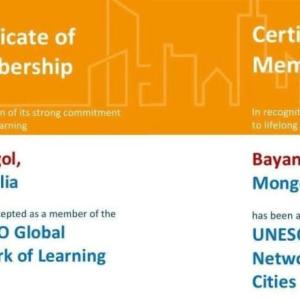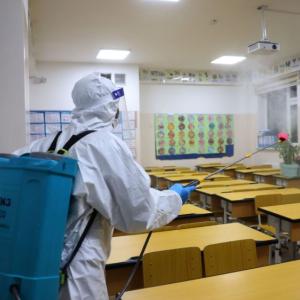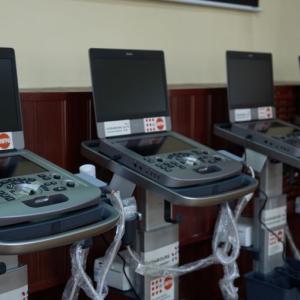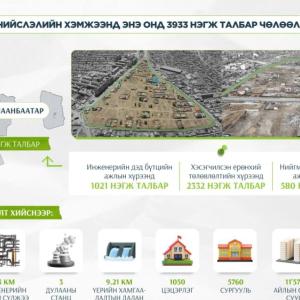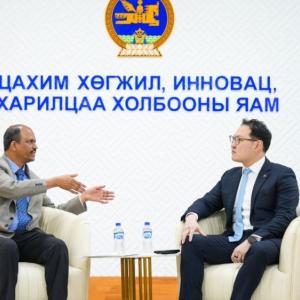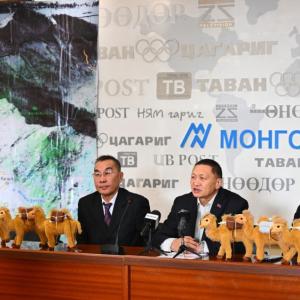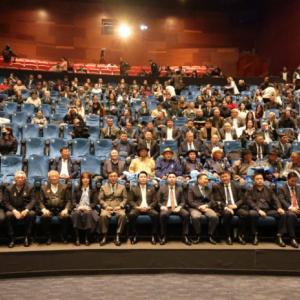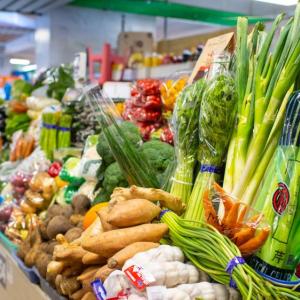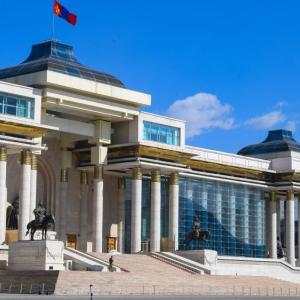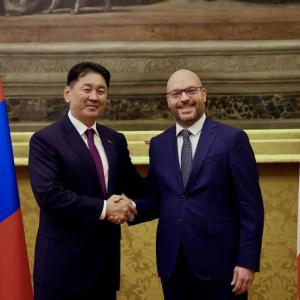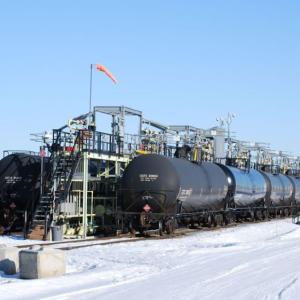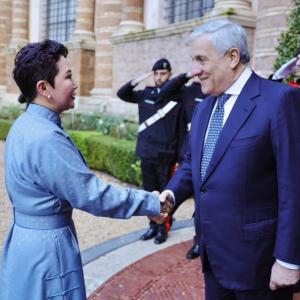“Food Revolution” Gains Momentum
Politics
Ulaanbaatar,
March 9, 2023 /MONTSAME/. Public, private and international organizations, and food producers have been joining and actively
supporting the “Food Supply and Safety” national campaign, initiated by the
President of Mongolia Ukhnaagiin Khurelsukh. The food and agriculture sector
representatives, joined the national campaign which is abbreviated as the “Food
Revolution”, assembled at the Government Palace last week to discuss the issues
they have faced.
The pandemic and geopolitical
tensions have resulted in food crises worldwide. During this trying time, ensuring
food safety has become the immediate goal for countries around the world.
Within the framework of the "Food Revolution", we, Mongolians, have set the goal of fully meeting our domestic needs of 19 major food products in the next 5 years, becoming a
food exporting country, and creating a healthy region free
of animal diseases.
In his remarks at the opening
of the consultation meeting, President Mr. Khurelsukh said, “In order to
successfully implement the “Food Revolution” national campaign, public and
private sectors should pay special attention to following six areas and work
together. These are, 1) Implementing
the "Food Revolution" in close coordination with the regional
development policy, establishing and developing clusters, planning the raw material
supply chain
and transport logistics network in an optimal way; 2) Improving the legal environment aimed at protecting and
developing wealth creators who produce food; 3) Solving the problems of
vaccination and production of biopreparations to create a healthy zone free of
animal diseases; 4) Leveraging the loan, tax, and insurance incentives, improve the incentive
system, and encourage private
sector investment; 5) Developing awareness among citizens to support their national
producers; 6) Reporting the results of "Food Revolution" to the public every six months”
This
year alone, it has been decided to allocate about MNT 223 billion in funding to
the food and agriculture sector, which is the largest support given to the
sector in the past 30 years.
Any
production project pays off in 5-10 years, so there is no way to finance a
national-scale project like "Food Revolution" with high-interest and short-term bank loans. Mongolian commercial banks have expressed
their support for the "Food Supply and Safety" national campaign and
have decided to grant long-term concessional loans of up to MNT 1 trillion to
enterprises in 2023 with an interest rate of 3-5 percent. For this purpose, the
Government has planned to spend MNT 135.5 billion for loan interest support.
In
addition to the discounted loans,
the Government has decided to support food producers and wealth creators by
providing certain tax incentives.
Specifically, new equipment for the processing of food and agricultural raw
materials will be exempted from customs duties on imported goods by 100% until
2027.
Also, until 2025, imported and domestically sold agricultural machinery,
equipment, fertilizers, and plant protection substances will be exempted from
VAT. Domestically grown grains, potatoes, vegetables, seedlings, fruits and
flour produced by the domestic farmers; industrially processed and domestically
sold fat and cut meat, unprocessed internal organs and by-products; milk and
dairy products processed with domestic raw materials and sold domestically are
exempted from VAT, respectively. In
addition, enterprises with annual sales of less than MNT 1.5 billion will enjoy
90 percent of tax reduction. Also, 50%
tax reduction will be given to enterprises that produce and cultivate grains,
potatoes, vegetables, milk, fruits, fodder, fodder plants, meat and
meat products.
Moreover, a permanent resident who produces and cultivates grain,
potatoes, vegetables and their seeds; fruits, berries, their seeds and
seedlings; fodder plants and tree saplings will receive a 50 percent discount
on the tax on the income from that production.
These decisions will be a big
boost for the "Food Revolution" to gain momentum. As a result,
thousands of new jobs will be created through domestic production, helping
people out of unemployment and poverty.
At
the end of his remarks, the President emphasized that in the future, in addition to food, we
should be able to fully meet our domestic needs for strategic products such as
electricity and fuel.
 Ulaanbaatar
Ulaanbaatar






